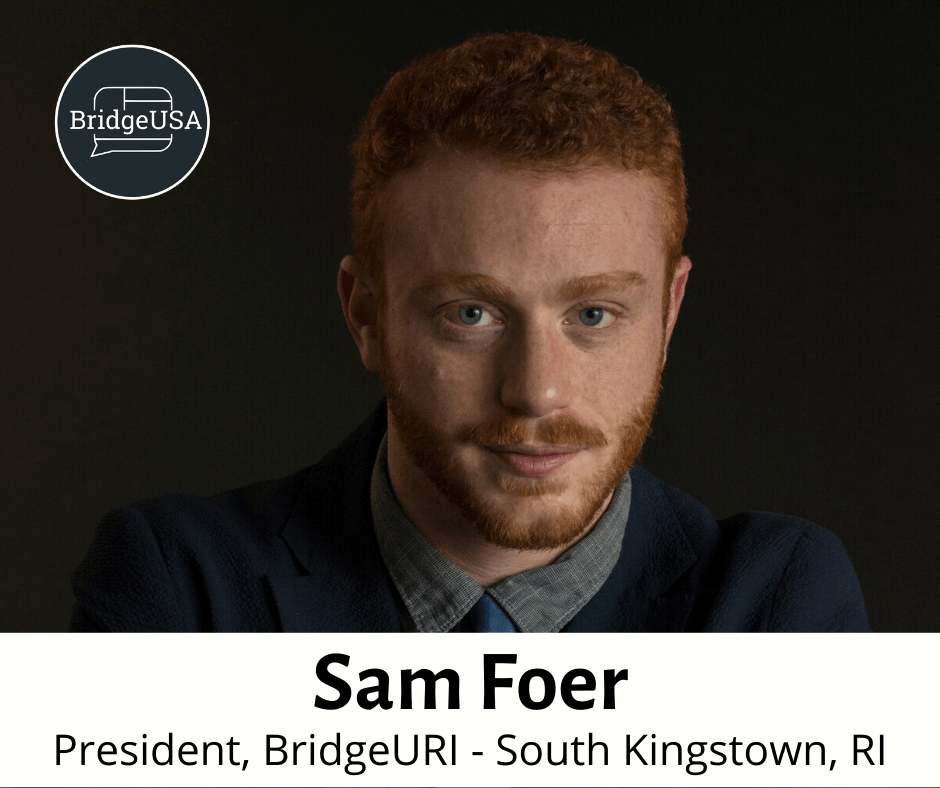“Upon graduating high school, my enthusiasm for college was noticeably brimming. I was finally going to be surrounded by peers who shared the passion to explore and investigate ideas and issues. The intellectual culture that I was impelled to immerse myself in was finally at my fingertips. But upon arriving at Hampshire College, I soon discovered that my expectation of tolerance for viewpoint diversity and multiple perspectives was no reality, but to my dismay, much the opposite. The culture at Hampshire had solidified a severe form of ideological homogeneity – never good for intellectual hygiene – where it was hard to find anyone with views that deviated substantially from the dominant ideological framework.
As the year progressed, it became increasingly hard to find anyone whose views deviated even remotely from specific ideas associated with the dominant ideology. The culture became one of intellectual feedback loops generated by confirmation bias within a bubble setting. Students, through social pressure and environmental conditions, were being molded to conformity. Once agreement became pervasive enough, disagreement became forbidden. I started raising concerns with the state of the culture, and began introducing ideas that were clearly off-limits to hold for the purpose of starting debates and discussion. I craved the intellectual culture that was being suppressed.
Instead of open-minded students willing to engage in constructive discussion around legitimate ideas and disagreements, I was smeared with labels denoting my perceived egregiousness, which I embodied simply for questioning the legitimacy of the doctrine and its particular ideas. I soon found out that other students who attempted a similar effort I did underwent the same aspersive attacks. It looked as though nothing could penetrate the walls of the ideological extremism occurring before my eyes.
For the sake of my intellectual, mental, and emotional well-being and to act on my inspiration to counter this phenomenon of anti-intellectualism, I transferred to the University of Rhode Island (URI). The summer going into my second year at URI, I interned with the Foundation for Individual Rights in Education (FIRE), where I learned about First Amendment law in relation to education. I had plans to work with my school’s administration to modify our student handbook to comport with Supreme Court rulings, as it was at the time in violation of the First Amendment.
My passion for free expression, however, was only one side of the coin of my concern for the health of our nation’s political and intellectual culture both inside and outside college campuses. I saw that in order to take full advantage of what our First Amendment guarantees us, we must come together to engage critically in thoughtful, constructive discussion surrounding controversial and hot-button issues. We must learn to work together to respect disagreement and grow in awareness of the multiple perspectives that constitute viewpoint diversity and democratic pluralism. My only issue was that I did not have the resources at the time to satisfy the latter side of the coin described above. That was until a FIRE staff member put me in contact with the renowned moral psychologist, Jonathan Haidt. Upon describing my Hampshire experience and my desire to alleviate the polarization our nation is currently undergoing, Jonathan put me in touch with BridgeUSA, and I quickly accepted an invitation to found a chapter of Bridge at URI.
BridgeURI, founded in September 2017, became the sixth official BridgeUSA chapter, and we have been going strong ever since. We host weekly discussions wherein we parse through a topic that our members voted on at the beginning of the week in-depth. Leading BridgeURI has also satisfied my thirst for an intellectual culture at college, and my motivation to disrupt the type of ideological uniformity and closed-mindedness that unfortunately plagued Hampshire, and is casting its devilish effects on the purposes of higher education at other institutions across the country.
Multiple BridgeURI members have approached me to share how Bridge has changed their life. They have said that if it weren’t for Bridge, they would have maintained a certain disrespect for people with opposing views, and antagonism towards ideas that deviate from the ones they hold tightly. They express that they have a renewed sense of appreciation for ambiguity and complexity, for entertaining ideas that conflict with their worldview, and that just by surrounding themselves with likable people who have unlike world views, they can generate compassion for such people that they were only previously able to generate for people who shared their opinions. When they tell me this, they seem to inhabit lightheartedness and lightness; you know, what you feel when an oppressive weight has been taken off of your shoulders, and you can relax into an appreciation for the grandness of the universe now that the stress associated with feeling hostile towards the unknown is dispensed.
These are the effects of BridgeUSA done right, and I believe that given the proper conditions and resources, we can all have a BridgeUSA type experience reform our approach to political life for the better.”

